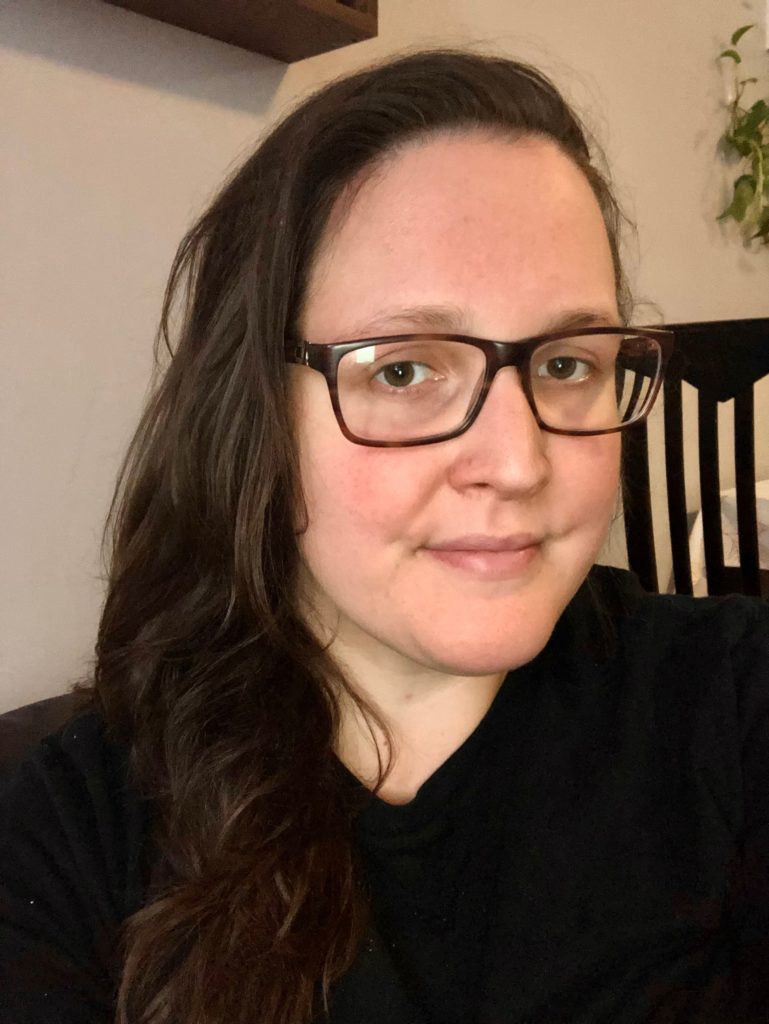Low Libido: Why It Happens and What You Can Do About It
Both men and women can experience reduced sexual arousal or desire for sex, often called ‘low libido’. Hypoactive Sexual Desire Disorder (HSDD) is the clinical term for this condition. HSDD is estimated to affect one in ten women in the U.S. and can have a significant impact on a person’s health and happiness.
Sexual desire often fluctuates to some extent; it can wax and wane just as relationships do over time. It may not seem too concerning initially, but it can become an issue when one partner has an active sex drive and the other doesn’t.
Low libido by itself is not a problem, but low libido coupled with distress is. Like other health problems, the issue can be recognized and treated.
Symptoms of Low Libido
Desire
Sexual desire is complex to address, since it has both psychological and physical components. The loss of sexual desire can be marked by:
- Decreased sexual activity between partners
- Decreased desire for or engagement in masturbation
- Fewer sexual thoughts and fantasies
Arousal
When a person is not aroused in the face of sexual stimulation, like kissing, watching erotica, or physical stimulation of the genital area for example, that person could be suffering from an arousal disorder. This is generally considered an issue among women and is characterized by the DSM-5 as such.
However, men can also suffer from a lack of arousal. In men, the issue is often called priapism, where an erection may last for several hours without being caused by sexual arousal, and the man may have no desire for sexual gratification. The condition usually requires emergency management.
Performance
Erectile dysfunction (ED), or the inability for a man to obtain or maintain an erection, can be related to low libido. A man who experiences ED may be psychologically more inclined to shut down his sexual desire and arousal in an attempt to manage his ED. Low testosterone levels, medications and certain medical conditions may lead to erectile dysfunction, including ED and Premature Ejaculation (PE).
For women, issues with performance often involve painful intercourse. Low libido can lead to vaginal dryness, a primary cause of pain during sex. The condition is called dyspareunia and it affects approximately 10–20% of women nationwide.
Orgasm
Orgasmic disorders are characterized by the inability to achieve orgasm, having orgasms that are less intense, or a delay in orgasm despite sufficient stimulation. Orgasmic disorders affect both men and women. For some, the inability to orgasm is a lifelong issue, while for others, it may be acquired after a period of normal orgasmic activity.
Causes of Low Libido
Psychological Issues
The psychological issues associated with low libido are complex. The most common are depression, anxiety, relationship issues and a history of sexual abuse. Relationship issues are often a complicated part of low libido. A relationship with a high level of conflict can lead to resentment and anger, causing one or both partners to feel estranged from one another. Long-term relationships can also result in low libido issues from over-familiarization. In other words, it’s possible for couples in long-term relationships to be quite happy in the relationship despite one or both partners experiencing low libido.
Body image also plays a part in a person’s sexual desire. If a person does not feel physically attractive, it can be difficult to engage in or desire sexual relations with someone else.
Hormonal Imbalance
As men and women age, their sexual hormone levels decrease. For women, declining levels of estrogen and testosterone during menopause contribute to lowered libido. This hormonal imbalance can occur at other earlier points in a woman’s life as well.
Hormonal imbalances of testosterone and estradiol in aging men can cause erectile dysfunction. These hormonal imbalances can also affect the libido and erectile dysfunction of younger men.
Stress and Anxiety
Stress and anxiety can also affect libido. By interfering with central and peripheral pathways of the sexual response, stress and anxiety can reduce a person’s motivation toward sexual activity. Daily stress and anxiety can trigger the fight or flight response, leaving little bandwidth for non-essential activities, including sex.
Prescription Medications
Many common medications can cause low libido and other sexual issues in men and women.
Some common medication classes that can cause low libido are:
- Anticonvulsants
- Antidepressants
- Antipsychotics
- Beta-blockers
- Benzodiazepines
- Statins
- Tagamet
Many prescription medications include warnings of these side effects. If low libido results from a certain medication, talking with your physician about alternative solutions can help.
Alcohol and Drug Use
The use of alcohol or drugs can lead to low libido and sexual dysfunction. Low sexual desire, erectile dysfunction and premature ejaculation are common in men living with alcohol dependence. In one study, 72% of those who were dependent on alcohol showed one or more forms of sexual dysfunction. Sexual dysfunction in this case may be due to the depressant effect of alcohol itself, an alcohol-related disease, or other factors related to alcohol use.
Obesity
While obesity affects men and women, the toll of obesity on libido is borne primarily by men. Obesity in men lowers the testosterone levels needed for a healthy libido. Both a high body mass index (BMI) and a large waist circumference are related with decreased testosterone levels in men.
Trauma
The impact of sexual violence on libido and sexual function cannot be overstated. Although men are victims of sexual violence, the brunt of sexual violence is against women. Worldwide, approximately 1 in 3 women will suffer sexual violence in their lifetimes. In one study, 65% of females who had experienced some form of sexual assault had also suffered from some level of sexual dysfunction. The greater the level of violence involved, the greater the level of sexual dysfunction.
Treating Low Libido
Treating low libido can require a multifaceted approach. Sexual desire encompasses biological, psychological, social and contextual components. As such, it may be helpful to treat the issue using more than one approach.
Seek Help for Mental Health Issues
Emotionally, feeling better can help. Counseling and appropriate medications can treat depression, anxiety and other mental health issues. When low libido is present, talk to a mental health professional about medication alternatives that minimize sexual side effects.
Get Your Hormone Levels Checked
Getting your hormone levels checked can be the first step toward hormone balancing in both men and women. Make sure to talk to your doctor about the risks and benefits of hormonal balancing. As with all health choices, there are some risks involved.
Stress Reduction
Practicing stress reduction techniques such as meditation, breathing exercises and progressive muscle relaxation can reduce stress levels, leaving more emotional room for sexual desire.
Talk to Your Doctor About Prescription Side Effects
There could be alternative medications that have little to no effect on your sexual desire and function. A doctor will usually discuss these issues when first prescribing a medication, but it could be worth asking about alternatives.
Limit Alcohol Consumption
Limiting alcohol consumption can come with many positive health benefits, including reversing low libido brought on by excessive alcohol use.
Weight Management and Regular Exercise
Weight management and regular exercise are connected to improvements in overall health. The management of obesity in particular can help a person feel better physically and emotionally.
Couples Counseling
Couples counseling is helpful in working through relationship issues that can be tied to lowered sexual desire. Poor communication, anger and resentment can fester in relationships, negatively affecting a couple’s sex life.
Addressing Low Libido With Nobu
Low libido is a complex issue. Relationships, medical and emotional health, stress, medications and alcohol or drug use can all play a part in its onset. Therefore, treatment may be require a multifaceted approach to address the root issues. A medical examination is often a good place to begin. Getting the right tools to help yourself is important.
The Nobu app can help you track your stress and mood and find support for decreasing alcohol or other drug use, getting you on your way to improving your overall well-being. For an added fee, you can also connect privately with a professional counselor.

Edited by – Erica Weiman
Erica Weiman graduated from Pace University in 2014 with a master’s in Publishing, and has been writing and editing ever since. She has written and edited content across many niches, including psychology & mental health, health & wellness, food, technology, and workplace culture. She is passionate about making information about addiction accessible to anyone who’s on a journey to recovery and their loved ones. When Erica isn’t writing or editing, she is working as a social media manager, cooking or traveling.

Written by – Audrey Howitt, LMFT
Audrey Howitt is a Marriage and Family Therapist licensed through the California Board of Behavioral Sciences. She has eight years of experience working with clients in a variety of fields including addiction, dual diagnoses depression, anxiety, and deep insight work. She also has significant experience working… Read more.

Medically Reviewed by – Dr. Angela Phillips
Angela is a licensed therapist and clinical researcher, and has worked in public, private, government, and not-for-profit organizations, across clinical and research-oriented roles. Angela’s clinical and research experience has included suicide prevention, cognitive behavioral… Read more.
- Shigehara, K., & Namiki, M. “Clinical Management of Priapism: A Review.” The World Journal of Men’s Health, April 2016. Accessed on September 25, 2021.
- Maclaran, K., Panay, N. “Managing Low Sexual Desire in Women.” Women’s Health, September 1, 2011. Accessed on September 25, 2021.
- AlAwlaqi, A., Amor, H., & Hammadeh, M. E. “Role of hormones in hypoactive sexual desire disorder and current treatment.” Journal of the Turkish German Gynecological Association, December 2017. Accessed on September 26, 2021.
- Hollander AB, Pastuszak AW, Hsieh TC, et al. “Cabergoline in the treatment of male orgasmic disorder—a retrospective pilot analysis.” Sexual Medicine, March 1, 2016. Accessed on September 27, 2021.
- Travison, Thomas G., Morley, John E., Araujo, Andre B., O’Donnell, Amy B., McKinlay, John B., “The Relationship between Libido and Testosterone Levels in Aging Men.” The Journal of Clinical Endocrinology & Metabolism, July 1, 2006. Accessed on September 26, 2021.
- Chen, T., Wu, F., Wang, X. et al. “Different levels of estradiol are correlated with sexual dysfunction in adult men.” Scientific Reports, July 29, 2020. Accessed on September 26, 2021.
- Graziottin, A. “Libido: the biologic scenario.” Maturitas, January 2000. Accessed on September 26, 2021.
- Herman JP, Mcklveen JM, Ghosal S, et al.”Regulation of the Hypothalamic-Pituitary-Adrenocortical Stress Response.” Comprehensive Physiology, March 15, 2016. Accessed on September 26, 2021.
- Just, Marek J. “The influence of atypical antipsychotic drugs on sexual function.” Neuropsychiatric Disease and Treatment, 2015. Accessed on September 26, 2021.
- Arackal, B. S., & Benegal, V. “Prevalence of sexual dysfunction in male subjects with alcohol dependence.” Indian Journal of Psychiatry, 2007. Accessed on September 26, 2021.
- Harvard Medical School. “Obesity: Unhealthy and Unmanly.” March 1, 2011. Accessed on September 27, 2021.